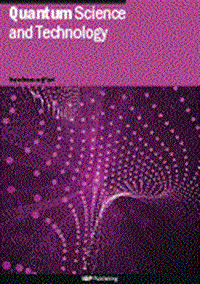通过平均场临界点的挤压生成:功统计、不可逆性和临界指纹
IF 5
2区 物理与天体物理
Q1 PHYSICS, MULTIDISCIPLINARY
引用次数: 0
摘要
理解量子相变对热力学量的动力学后果,如功统计和熵产生,是量子多体系统最有趣的方面之一,精确地指出了关键特征的不可逆性的出现。在这项工作中,我们研究了在经历有限时间周期的平均场临界系统中出现的关键热力学量的关键指纹,从一般逆温度的热状态开始。与非零维多体系统相比,在有限时间循环中平均场临界点的存在导致即使在无限慢速行驶的极限下也会产生恒定的不可逆功。这与缓慢的有限时间周期导致恒定数量的挤压这一事实有关,这使我们能够推导出功统计和不可逆熵的解析表达式,仅依赖于平均场临界指数和临界点附近控制参数的函数形式。我们发现,观察到负功值(对应负不可逆熵)的概率与系统保持在临界点附近的时间成反比,并且这种趋势随着初始热态温度的降低而变得不那么明显。最后,我们利用相干的相对熵确定了零温度下压缩产生的不可逆性特征。本文章由计算机程序翻译,如有差异,请以英文原文为准。
Squeezing generation crossing a mean-field critical point: work statistics, irreversibility, and critical fingerprints
Understanding the dynamical consequences of quantum phase transitions on thermodynamical quantities, such as work statistics and entropy production, is one of the most intriguing aspect of quantum many-body systems, pinpointing the emergence of irreversibility to critical features. In this work, we investigate the critical fingerprints appearing in these key thermodynamical quantities for a mean-field critical system undergoing a finite-time cycle, starting from a thermal state at a generic inverse temperature. In contrast to non-zero dimensional many-body systems, the presence of a mean-field critical point in a finite-time cycle leads to constant irreversible work even in the limit of infinitely slow driving. This links with the fact that a slow finite-time cycle results in a constant amount of squeezing, which enables us to derive analytical expressions for the work statistics and irreversible entropy, depending solely on the mean-field critical exponents and the functional form of the control parameter near the critical point. We find that the probability of observing negative work values, corresponding to negative irreversible entropy, is inversely proportional to the time the system remains near to the critical point, and this trend becomes less pronounced the lower the temperature of the initial thermal state. Finally, we determine the irreversibility traits under squeezing generation at zero-temperature using the relative entropy of coherence.
求助全文
通过发布文献求助,成功后即可免费获取论文全文。
去求助
来源期刊

Quantum Science and Technology
Materials Science-Materials Science (miscellaneous)
CiteScore
11.20
自引率
3.00%
发文量
133
期刊介绍:
Driven by advances in technology and experimental capability, the last decade has seen the emergence of quantum technology: a new praxis for controlling the quantum world. It is now possible to engineer complex, multi-component systems that merge the once distinct fields of quantum optics and condensed matter physics.
Quantum Science and Technology is a new multidisciplinary, electronic-only journal, devoted to publishing research of the highest quality and impact covering theoretical and experimental advances in the fundamental science and application of all quantum-enabled technologies.
 求助内容:
求助内容: 应助结果提醒方式:
应助结果提醒方式:


